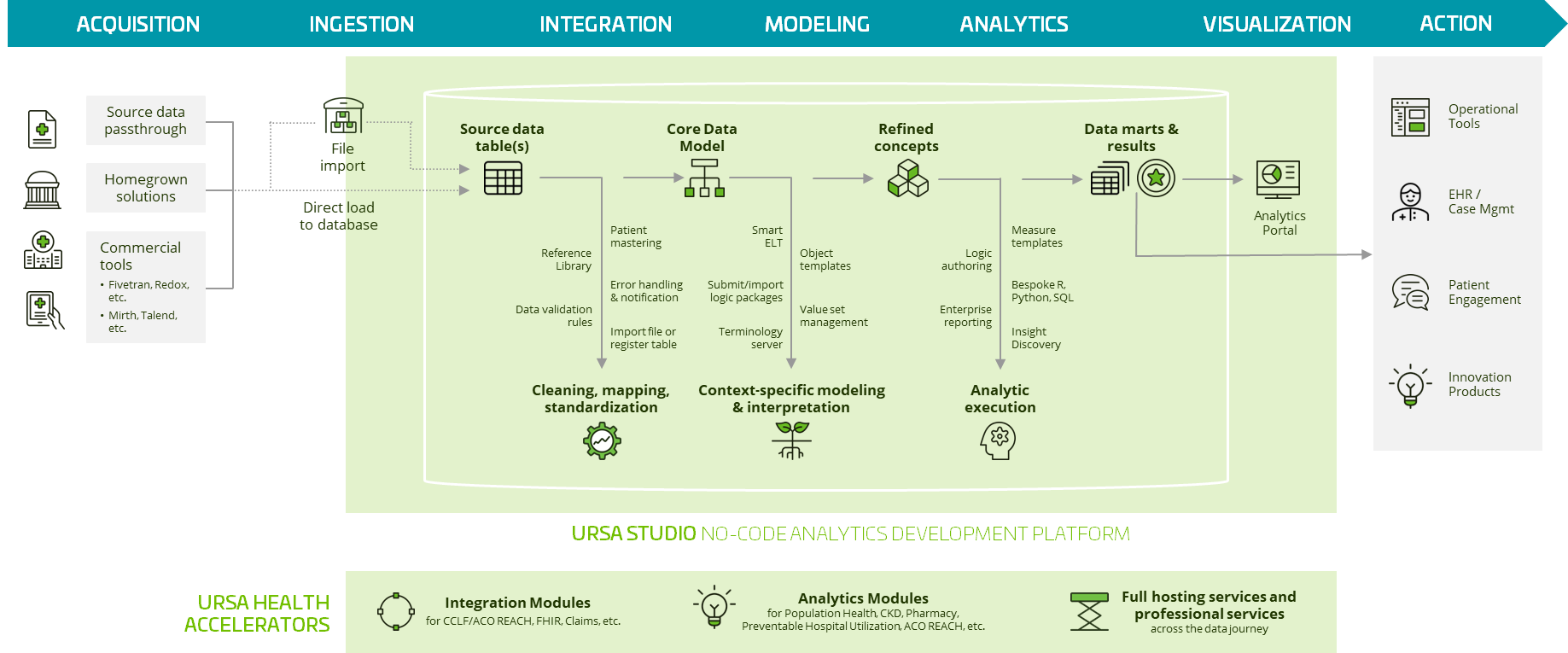Healthcare data integration for specialty care companies
Healthcare data integration is the foundation for trusted, flexible analytics: If this step is done incorrectly or incompletely, downstream results from the mapped data will be invalid, and/or certain analytic use cases will be rendered unavailable.
Source data will vary. Ursa Studio enables internal teams to integrate healthcare data in a self-service fashion with an advanced set of software features. Then, to accelerate the process even further, deploy Ursa Health Integration Modules pre-built to handle specific types of data, allowing your technical resources to focus on finding answers within the data that accelerate the innovation process.
Get help for your least favorite task
Too often, source data must conform to some standard extract, which burdens the data provider, takes time, and causes relationship strain. Or analytics vendors insist on owning the integration step, a "black box" approach that reduces trust in the process and potentially limits use cases. Or internal teams write code in an unsupported way, which takes time and creates additional technical maintenance burden.
For Ursa Studio users, “healthcare data integration” is not merely reformatting source fields; instead, it is the full preparation of an enriched enterprise reporting environment. With a unified toolkit for accessing source tables, accommodating the variation in expected concepts, and wrangling the ones unique to that source, users can glide through no-code interfaces to review individual cases and iteratively develop accurate logic. The output is a comprehensive data model that serves as the high-integrity foundation for all downstream analytic building blocks.

How you benefit
UNRESTRICT
DIAGNOSE
ENRICH
Accelerators save you time and money
In addition to the rich software feature set of Ursa Studio, organizations have the option of deploying an array of Ursa Health Integration Modules to expedite the process of working with specific types of healthcare data. Modules bundle up specific mapping and interpretation logic for selected data extracts.
For data sources that are less standardized — for example, a health plan claims data package — the modules provide broad guardrails and validity detection tools to support the user.
For data sources that are more standardized — for example, packages from CMS or from an EMR database — the modules essentially automate a large portion of the integration work.
Start on third base
ACO REACH data
Generic claims data
Generic EMR data
Power clinically focused analytics with common concepts such as problem list, encounters, scheduling, orders, and patients.
